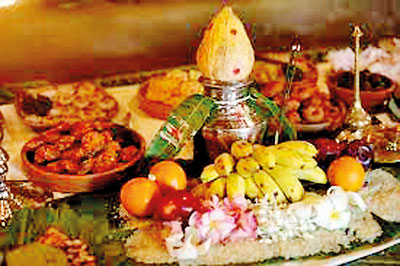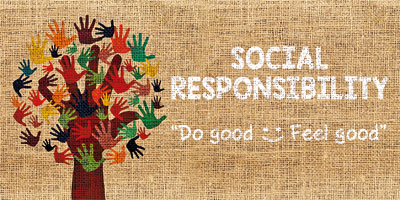What is it like to have a New Year in the middle of the year?
View(s): Sri Lankans have been celebrating the New Year in the month of Buk (Apirl) since time immemorial and there are records in the history to prove that it has been a national festival which is connected to the period of harvesting… Festivities begin with the fresh harvest which revolve around worshiping Sun as the ancient Sri Lankans believed in the fact that everything was depending on the energy and Sun was recognised as the fundamental source of energy. Ancient Sri Lankans were known as ‘Helaya’ as they used to climb rocks and mountains to worship Sun as it was considered to be the creator and the originator of all the other energy sources. The process of exchange is the main concept which drives the New Year in April as it involves in exchanging energies with family, friends, relatives and the nature. Following the same rituals Tamils in South India too have followed good customs which resemble with most of the rituals which are practiced to date in both countries. New Year celebration is common to certain other Asian countries such as Thailand which also implies the fact that it was connected with Buddhism too. However, both Hindus and Buddhists have celebrated New Year in April and it has been the most awaited festival throughout the history.
Sri Lankans have been celebrating the New Year in the month of Buk (Apirl) since time immemorial and there are records in the history to prove that it has been a national festival which is connected to the period of harvesting… Festivities begin with the fresh harvest which revolve around worshiping Sun as the ancient Sri Lankans believed in the fact that everything was depending on the energy and Sun was recognised as the fundamental source of energy. Ancient Sri Lankans were known as ‘Helaya’ as they used to climb rocks and mountains to worship Sun as it was considered to be the creator and the originator of all the other energy sources. The process of exchange is the main concept which drives the New Year in April as it involves in exchanging energies with family, friends, relatives and the nature. Following the same rituals Tamils in South India too have followed good customs which resemble with most of the rituals which are practiced to date in both countries. New Year celebration is common to certain other Asian countries such as Thailand which also implies the fact that it was connected with Buddhism too. However, both Hindus and Buddhists have celebrated New Year in April and it has been the most awaited festival throughout the history.
History of ‘New Year’
Cultural history of the ‘Traditional New Year’ which is celebrated in the month of April, goes back to an ancient period in Sri Lankan history. Sri Lankans think that the celebration of the New Year is the change of thoughts too. Various beliefs, perhaps those associated with the fertility of the harvest, gave birth to many rituals, customs, and ceremonies connected with the New Year. The advent of Buddhism in the 3rd century BC led to a re-interpretation of the existing New Year activities in the light of Buddhism. Hinduism, on the other hand, existed side by side with Buddhism, in medieval times. New Year practices interpreted in the Hinduism way developed among the Hindus. Buddhism and Hinduism were historically connected with each other. Their philosophies were running along parallel dimensions, except for certain ultimate truths concerning the self, the way to achieve emancipation and the nature of a creative god (which Buddhism denies) and nirvana. There was no serious contradiction in New Year rituals that are found among the Buddhists and Hindus.
Take Aways from New Year
Leaving aside what to be taken from the history, it will be beneficial for all five generations (Gen Z, Y, X, Millennials, and Gen Alfa) which are living in Sri Lanka in today’s context to look at what it could really mean. As it’s well evident, the month of April is the month in which Sri Lanka experiences the highest temperature and this could be due to the reason that there is a shift from one Zodiac House to another during this period [The observed movement of the Sun from Meena Rashiya (House of Pisces) to the Mesha Rashiya (House of Aries)]. The vibrancy in the natural environment is also much visible to the point that trees bear more fruits and flowers during this season. Awurudu is all about renewing relationships, strengthening them and re-vamping them to lead the year in a more productive and fruitful manner. Taking of nekath (Auspicious times) in to consideration, it’s one special moment the whole nation engages in one positive activity, be it cooking, eating or exchanging. As per latest findings of science, if a nation can do one simple act at the same time, it can generate an enormous power. Connecting millions of hearts to one moment is truly a magical feeling which only happens on the 31st night of December each year as the whole world embraces the dawn of a new year as per the western calendar. As far as April New Year is concerned, wearing one designated color and following one direction, performing the same task has to mean something better and bigger. One of the most important elements of the New Year period is to let go of bad habits and cultivate new habits which can generate positive results during the year. Giving back to the nature by planting trees, exchanging with the well by means of dropping a piece of charcoal (As tap water is a modern phenomenon which was not prevailing in ancient times well was the source of pure drinking water for most of the households and the housewives used to perform transactions for the auspicious time with the well) was with the assumption that it would cleanse water, which is confirmed by modern science. Elders being worshiped with a sheaf of freshly plucked betel leaves showing the due respect is an important custom which is practiced in Sri Lanka during the Awurudu season. Respect is one of the fundamental pillars of peace and harmony in any society. It also makes the worshiper feels better as the best wishes need to come from the bottom of their hearts. Overall, in conclusion Awurudu is all about making everyone feel better and giving new hopes to drive rest of the plans for the year. Another important element of Awurudu Ganudenu is to forgive those who have been not so right and nice to one-self and embrace them with open arms forgiving them for wrong doings, allowing the other person to take corrective actions as it says to err is human to forgive is divine. Therefore, the New Year brings an excellent opportunity for someone who wants to correct themselves by reflecting on their own mistakes and accepting new challenges and making positive changes to contribute more to the society by and large in a positive direction.
Relax – Reflect – Refresh – Renew and Revamp
In this backdrop, it’s worth taking a look at what Awurudu could mean to the corporate world, which now has replaced the agriculture-based traditional society where Sri Lankans used to celebrate New Year in. As most of the organizations make their financial plans from April to March, Awurudu could really mean setting new hopes, new plans and new energies to drive the plans throughout the year. Igniting the flames of new hopes would mean that; the whole organization is ready to kick start the year with blessings from the nature. For those organizations which set their plans from January to December: New Year in April mean an opportunity to relax and re-visit what’s been executed so far for the first three months and to reflect and take corrective actions to make sure the plans being executed would deliver results towards the year end. In other words, our tradition has given us a break after the first quarter to re-energize us to get back to work with regained energy during the April season. Therefore, it’s pivotal to re-think of strategies, re-visit those which are executed already, and refresh and reflect to carry out the year-long responsibilities in a more productive manner as one united team.

And for those who have their financial year begins in April, it’s an excellent opportunity to embrace the new challenge for the year with a fresh mind reflecting on what was done right or wrong during the previous year and making sure that the same mistakes wouldn’t repeat in the fresh year. Having said of strategies, it’s important to bear in your mind; strategizing is not about greed and accumulation of wealth at the cost of over exploitation of labour, human capital and natural resources nor will it be about promoting undue consumption for people who are less fortunate or spending extravagantly on flamboyant advertising which wouldn’t add much to the value creation process as far as the well-being of the society is concerned. Embrace the energies of the nature and give back to the society and to Mother Nature.
Therefore, when you get back to your work, studies, law making, execution of laws, making of arts, performing of your office duties, domestic duties etc, always try to do your best no matter what. There will be someone watching you from above.




